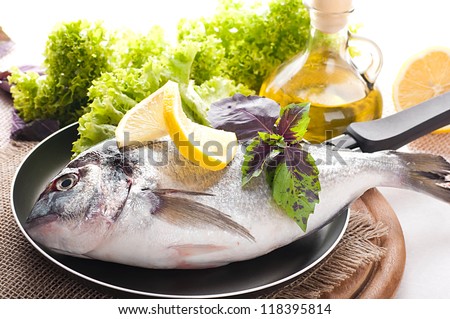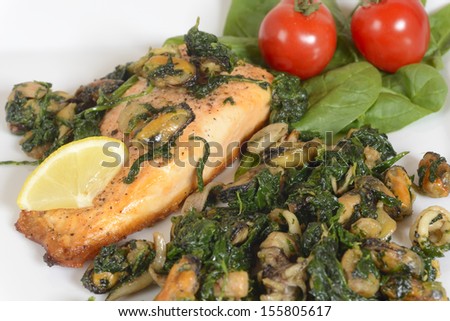People have been eating fish since the dawn of man.
It’s been a staple for humankind in every area where fish can swim and has
without a doubt been one of the foods that have kept humans alive, but in many
more ways than offering mere sustenance. It’s a lean protein, with vitamins,
minerals, fatty acids and numerous compounds that can stave off high blood
pressure, macular degeneration, depression, osteoporosis and diabetes.
Another new study in the journal Circulation reveals
that people who eat two or more servings of oily fish per week had a
“significantly lower risk of heart attack and stroke,” even in individuals who
don’t make “eating healthy” a priority. The study authors wrote:
“We
conclude that one to two seafood meals per week be included to reduce the risk
of congestive heart failure, coronary heart disease, ischemic stroke, and
sudden cardiac death, especially when seafood replaces the intake of less
healthy foods.”
One of the most glowing reviews of fish as a healthy
food was in light, again, of the high levels of omega-3s, with a notation that
they’re one reason the Mediterranean diet has been all the rage over recent
years. Omega-3s enter your cell membranes, which is important for cell
signaling and essential for an optimally functioning heart. Forbes noted a
number of other perks:
“Research
has focused largely on the anti-inflammatory influence of omega-3s, which
counters the hardening and narrowing of arteries that characterizes heart
disease. Diets higher in omega-3s are also linked to lower triglyceride levels
and fewer fatty deposits that clog arteries …
But
don’t think a Friday night plate of fried catfish and slaw will fill the need.
Eating fried seafood doesn’t provide the same benefits, and likely contributes
to the very problem eating non-fried fish helps improve. The results of one
study suggested that people who ate fried fish at least once a week were nearly
50 percent more likely to develop heart failure than those who rarely ate fried
seafood.”
So should you eat fish? Again, pregnant moms and
young children — and really, everyone — should steer clear of high-mercury
seafood, but if you choose the healthiest options, the benefits are worth the
risk for most people.
As a general rule, your best choices are small,
cold-water, fatty fish, which are an ideal source of omega-3s with a low risk
of contamination. The healthiest fish I suggest you consider eating more often
include anchovies, sardines, mackerel, herring and wild-caught Alaskan salmon —
step away from farmed varieties, both for your health and for the environment.
Article Source: Dr Mercola at Mercola.com



